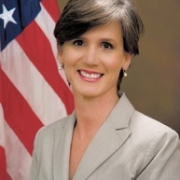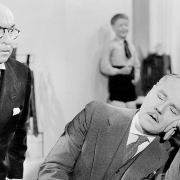Why CEO Activism Could Change the World of Public Companies
 In the past few months, a string of CEOs from large American public companies have spoken boldly on some of the most divisive societal concerns of our time: LGTB rights, gun control and racism and police brutality. The business press has dubbed them “Activist CEOs.”
In the past few months, a string of CEOs from large American public companies have spoken boldly on some of the most divisive societal concerns of our time: LGTB rights, gun control and racism and police brutality. The business press has dubbed them “Activist CEOs.”
In March, Apple CEO Tim Cook, published an editorial in the Washington Post condemning state religious freedom laws tied up in a battle over gay rights and marriage equality. Starbucks CEO Howard Schultz garnered significant press attention for his personal positions on gun control and race relations. In 2013, he told gun-toting customers to leave their arms at home. The “Race Together” initiative exhorted Starbucks employees and customers to participate in the national conversation on race relations.
Ethical Systems collaborator David Mayer has written several papers examining what happens when CEOs and executive leaders “act in ways that suggest they consider work to be a moral domain.” One study (Mayer et al. 2014) examined how ethical leadership can effect how individuals conceive and mentally approach ethical decisions. They found that ethical leadership decreases employees’ moral detachment or “moral disengagement” (the term used in sociology) that leads to unethical decision-making.
Ann Tenbrunsel, another Ethical Systems collaborator, found that when an individual is in “a business frame of mind” they are more self-interested and less honest than when in they are in a “moral “frame.” For example, says Tenbrunsel, “Even calling a game the Stock Market Game versus calling it a Community Game leads to adopting different frames and vastly different behavior—with more unethical behavior when the same game is labeled as a Stock Market Game.”
CEO activism, in whatever form, likely does not surface without approval from the board of directors. Governance experts commenting on the risks of CEO activism on NPR’s Marketplace explain: “You don’t very often see a CEO of a public company taking a public stance on a controversial issue without the CEO going first to the board,” says Donna Dabney, executive director of the Conference Board’s Governance Center. Directors are likely to be supportive, since “CEOs and companies these days are feeling they should speak up on societal issues.”
John Coffee, professor of law at Columbia University, takes a slightly harder line. As he told NPR, “Every company does things differently. Some have business-policy committees to control corporate image — and corporate mouths — extra tightly. Others will let a CEO live his or her life as long as they don’t reduce shareholder value.”
It remains to be seen whether CEO activism can increase employee’s moral engagement or resistance to immoral acts. Nevertheless, research shows that leadership is likely the most important lever to promote ethical conduct in individuals and organizations. And any CEO who has the courage to insert themselves in morally complex debates, and the fortitude to stand by their principles, regardless of the profit implications, is certainly a strong ethical role model.
FURTHER READING
- Aaron Chatterji and Michael Toffel, “Starbucks Race Together” Campaign and the Upside of CEO Activism,” Harvard Business Review, March 24 2015
- Celia Moore, David Mayer et al, Leaders Matter Morally: The Role of Ethical Leadership in Shaping Employee Moral Cognition and Misconduct, SSRN, December 21, 2014
- Michelle McQuaid, Are you an Ethical Leader?, Huffington Post May 22, 2015
- Shandwick, The CEO Reputation Premium: Gaining Advantage in the Engagement Era, KRC Research and Weber Shandwick, 2015
- Leslie-Gaines Ross, “CEO Activism Spreading” Reputation XChange, June 24, 2015









